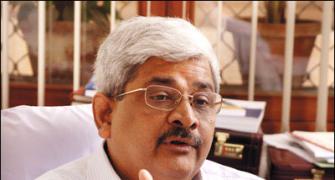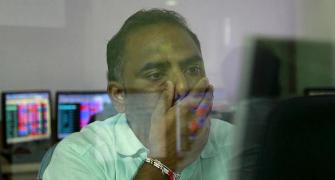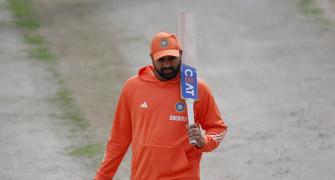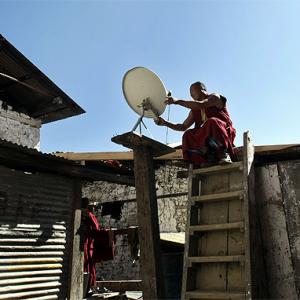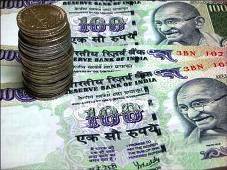 Almost one in every three borrowers did not repay loans to microfinance companies since the industry plunged into a crisis in October 2010.
Almost one in every three borrowers did not repay loans to microfinance companies since the industry plunged into a crisis in October 2010.
In absolute terms, close to 9.2 million customers (almost equal to Mumbai's suburban population) have defaulted on loan repayment. Microfinance institutions currently have around 32 million clients in the country.
The borrowers, mostly women from Andhra Pradesh, also form the largest chunk of defaulters in the world, industry players say.
They have now been blacklisted from getting loans from banks and microfinance companies in future.
If the crisis persists, microfinance companies will have to write off around Rs 4,000-6,000 crore of loans in Andhra Pradesh.
The trouble started when the state government passed a new law to curb micro-lending activities by private players in Andhra Pradesh in October 2010.
The legislation affected loan recoveries, impacted profitability of micro-lenders and eroded investors' confidence in the sector.
"Around 9.2 million women now form the largest list of blacklisted borrowers in the world, thanks to the AP Act," Legatum, a multi-billion dollar global fund managing proprietary capital, said.
Legatum is also a majority owner in SHARE Microfin, a Hyderabad-based microfinance company, which has been impacted by the crisis in Andhra Pradesh.
"In the short term, the borrowers might have enjoyed unexpected relief from their obligations, and the politicians in Andhra Pradesh might have successfully increased their popularity among voters, but the longer term impact is already coming into focus.
The credit discipline and culture of responsibility amongst borrowers, carefully nurtured over 20
Industry players say it will be almost impossible for the defaulters to get fresh loans as microfinance companies have started submitting their clients' data with credit bureaus in the country.
The credit scores of these borrowers have deteriorated and they are now considered delinquent in their loan repayments.
All credit institutions including non-banking financial companies are required to get registered with at least one credit bureau.
The Reserve Bank of India has also asked NBFCs to provide historical records to new credit bureaus, so that they can develop a robust database.
Since microfinance companies are classified as NBFCs, these firms have started providing data to credit bureaus. Currently, there are four credit information companies, Equifax, High Mark, CIBIL and Experian, in India.
"It is about time that the Andhra Pradesh government realised the damage it caused the poor borrowers. These people now have no option but to return to the money lenders," Kishore Kumar Puli, chief executive of Trident Microfin, said.
In non-Andhra Pradesh markets, however, the loan recoveries have so far remained robust.
"For unsecured loans extended by banks to individuals, including self-help groups, the repayment rates have, typically, been around 95 per cent.
"The repayment rates of microfinance clients outside Andhra are at 98-99 per cent levels.
"It must be said the entire responsibility for repayment rates plummeting from 99 per cent levels to below 10 per cent in Andhra lies with the state government," Alok Prasad, chief executive of Micro Finance Institutions Network, said.



